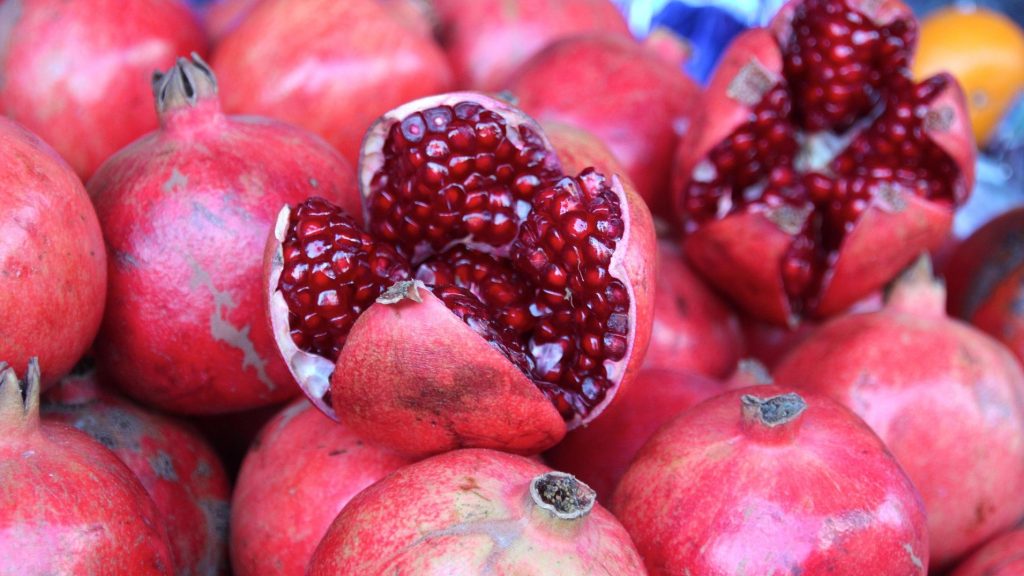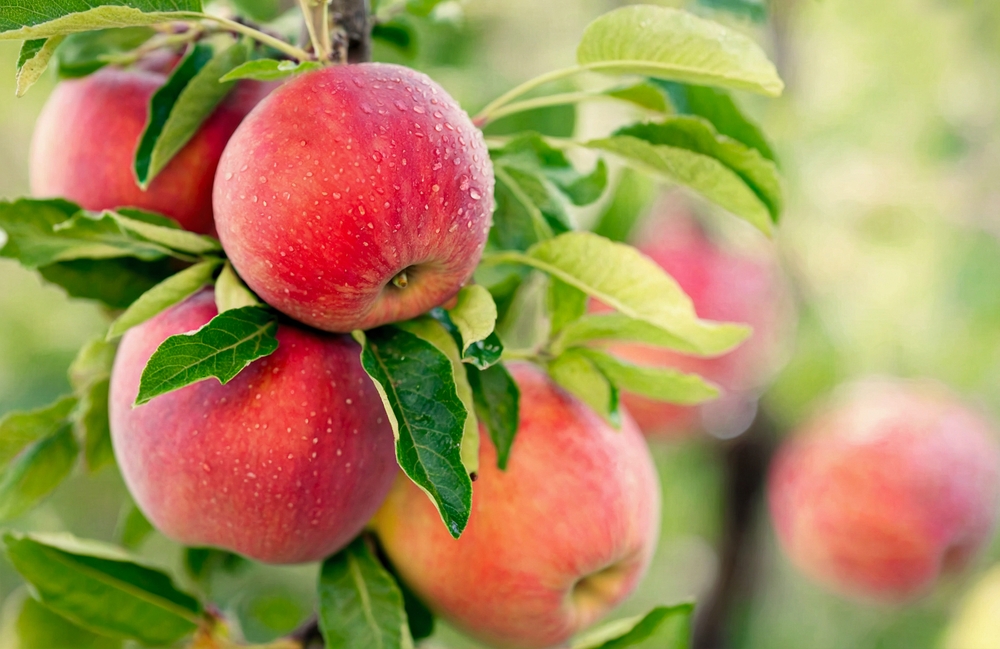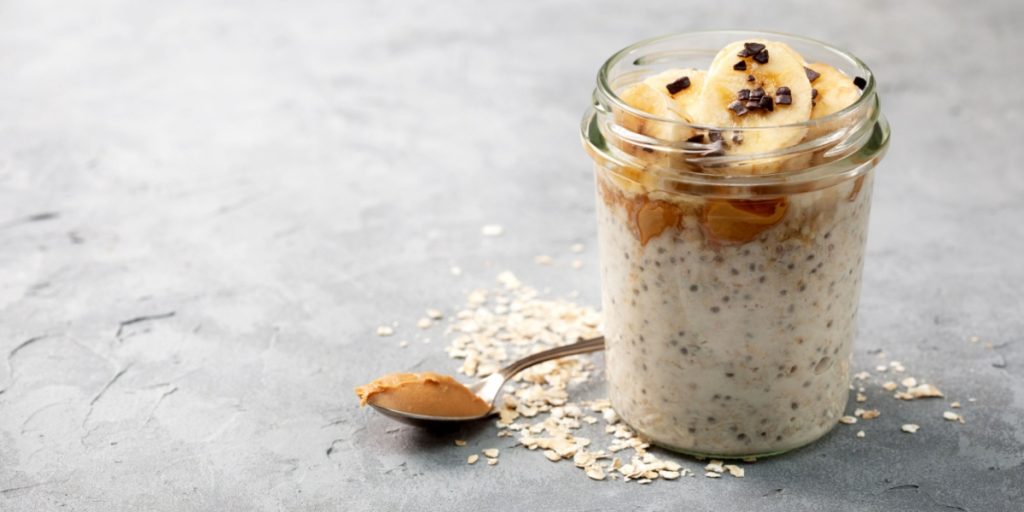Here’s what the dietitians recommend.
Others are reading now
Dealing with metabolic syndrome doesn’t mean cutting out fruit.
In fact, some fruits can actually help.
Here are six that dietitians recommend for supporting better blood sugar, heart health, and more.
What Is Metabolic Syndrome

Metabolic syndrome affects roughly 1 in 3 Americans, increasing the risk for type 2 diabetes, stroke, and heart disease.
It’s diagnosed when someone has at least three of the following: high blood pressure, high blood sugar, excess belly fat, low HDL (good) cholesterol, or high triglycerides.
Also read
Why Fruit Matters for Metabolic Health

Lifestyle changes, especially diet, can make a major difference. And despite what some might think, fruit is not the enemy.
In fact, certain fruits contain nutrients and compounds that directly help improve metabolic health.
Here are six fruits that registered dietitians say can support your body if you’re living with metabolic syndrome.
1. Pomegranate

Pomegranates are loaded with anti-inflammatory and antioxidant compounds, like flavonoids and tannins, which may help lower blood pressure, cholesterol, and blood sugar.
“Pomegranates help grow more of the healthy gut bacteria called Akkermansia, which is linked to a healthy metabolism and immune system,” says Emily Wood, RDN, to EatingWell.
Also read
Try this: Sprinkle pomegranate arils into yogurt or toss them over a salad for a sweet crunch.
2. Watermelon

Watermelon is mostly water, but it’s far from empty calories.
Research shows that eating 2 cups of watermelon daily helped participants feel fuller, lose weight, and lower their blood pressure compared to those who ate the same calories in cookies.
“It’s packed with potassium, vitamin C, magnesium, and the antioxidant lycopene,” explains Moushumi Mukherjee, M.S., RDN.
Try this: Make a watermelon, mint, and feta salad for a refreshing side dish.
Also read
3. Blackberries

Blackberries have a low glycemic index, meaning they won’t spike blood sugar like some fruits might.
Plus, they’re high in fiber, which keeps you feeling full and helps regulate blood sugar.
“Blackberries also offer potassium, calcium, and magnesium, which all help reduce blood pressure,” says Adiana Castro, M.S., RDN.
Try this: Mash blackberries with chia seeds for a quick jam and spread it on whole grain toast or crackers.
4. Citrus Fruits

Grapefruit, oranges, lemons, and limes aren’t just rich in vitamin C—they’re also packed with flavonoids, which support insulin sensitivity and reduce inflammation and oxidative stress, all of which are factors in metabolic syndrome.
Also read
“Citrus is part of the DASH diet, which is often recommended for managing high blood pressure,” says Lisa Andrews, M.Ed., RD, LD.
Try this: Add slices of orange to a green salad or drink lemon water in the morning.
5. Grapes

Grapes may help lower blood pressure, triglycerides, and LDL (bad) cholesterol, and—like pomegranates—they’re associated with increased levels of Akkermansia in the gut.
“That gut bacteria is linked to lower rates of metabolic syndrome,” says Emily Wood, RDN.
Try this: Pair grapes with a protein like cheese or almonds to avoid blood sugar spikes, or add them to chicken salad for a sweet contrast.
Also read
6. Apples

Apples are full of fiber, especially in the peel, which also contains antioxidants like anthocyanins and flavonols. Both are shown to help reduce metabolic syndrome risk factors.
“Slice them up, add peanut butter, and sprinkle with chopped nuts for a fun apple nacho snack,” says Adiana Castro, M.S., RDN.
Try this: Eat apples with the skin on for the full benefit, especially if you’re managing blood sugar or cholesterol.
Extra Tips to Manage Metabolic Syndrome

Fruits are a great place to start. But they work even better as part of an overall healthy lifestyle.
Here’s what else dietitians recommend:
Also read
Eat Consistently and Mindfully

Space your meals every 3–4 hours, and aim for a balance of protein, fat, and fiber to help regulate blood sugar and control cravings.
Pack Your Plate with Whole Foods

Add leafy greens, beans, legumes, nuts, seeds, and whole grains to your meals. These provide fiber, antioxidants, and heart-healthy fats.
Cut Back on Saturated Fat and Processed Foods

Limit fried foods, high-sugar snacks, and overly processed convenience foods that can worsen metabolic risk factors.
Get Moving

Even 20 minutes a day of physical activity can help manage blood sugar and lower blood pressure.
“Aim for at least 150 minutes of movement per week,” recommends Emily Wood, RDN.


